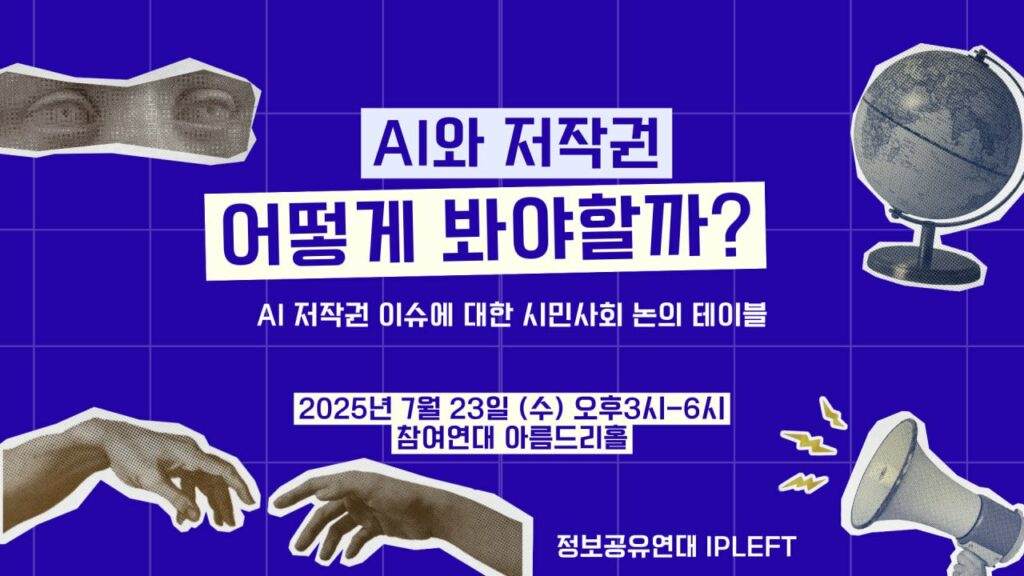
On July 23, 2025, Researcher Kyungmi Oh participated as a discussant in a civil society roundtable on AI copyright, proposed and organized by the Information Sharing Coalition IPLEFT. The following summarizes the main points of Kimmy’s discussion.
Absence of creators’ voices
The debate feels incomplete without the direct participation of creators—the very group most affected as both data providers and AI users. Their perspectives are crucial, especially when considering proposals such as Open Net’s “non-transferable creator right.”
Differentiating responsibilities between big tech and smaller firms
While some argue that copyright responsibilities should be scaled by company size, this could lead to oversimplified divisions (“big tech vs. startups”) and unintended abuses by smaller but harmful players. Moreover, imposing copyright levies on big AI platforms risks being passed down to users, undermining freedom of expression and access to information.
Redistribution frameworks beyond copyright
Proposals like Open Future’s suggest broader benefit-sharing mechanisms (akin to carbon taxes). While conceptually appealing, practical issues remain—measuring contributions, achieving fair redistribution, and potential clashes with existing copyright regimes. Open Net instead suggests a more realistic route through a “non-transferable creator right” to ensure fair compensation without reinforcing monopolies.
Generative AI’s cultural impact
Generative AI’s transformative role could be compared to photography’s disruptive arrival in art history: initially feared, later redefined as an independent medium. Ultimately, the impact will depend on social norms, values, and policy choices—underscoring the need for future-oriented dialogue with creators themselves.


0 Comments